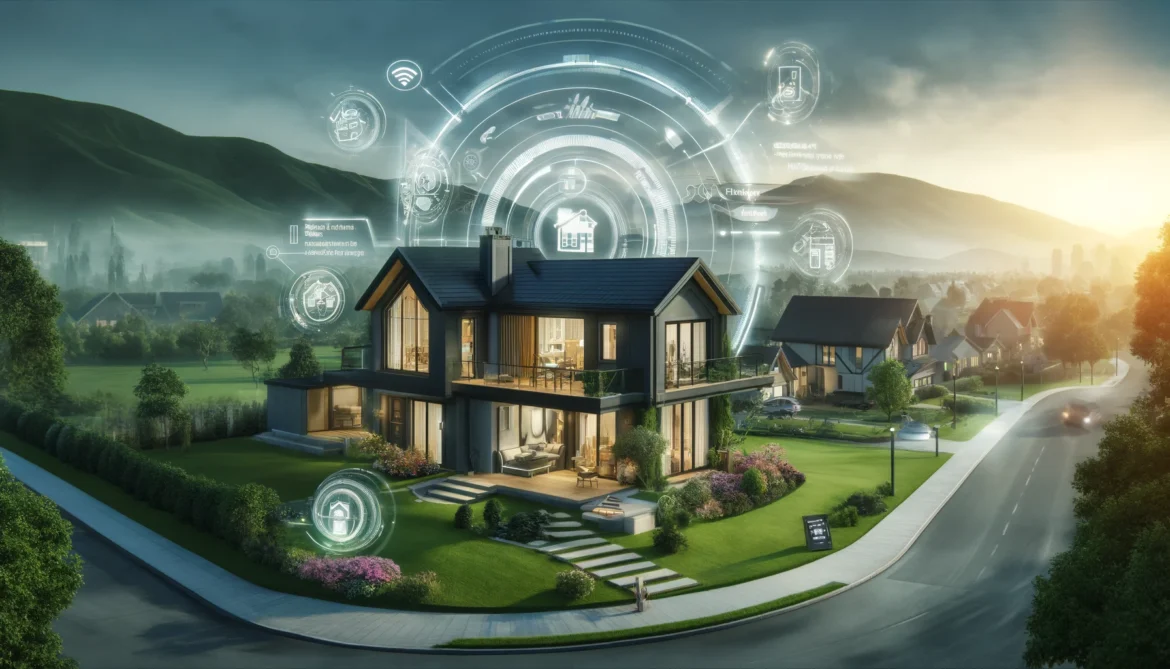Table of Contents
Smart homes have revolutionized how we live our connected lives with their unmatched ease, efficiency, and security. However, smart home technology also has profound ramifications for reputation management; going beyond its utilitarian benefits, its use can influence how both companies and homeowners are seen by society at large. In this piece, we explore how smart home technology helps manage reputation in this digital era and foster favorable images.
Smart Homes Are Shaping Modern Lifestyle
Smart home technology has revolutionized how we interact with our living spaces. Comprising several networked devices and technologies easily integrated into daily living, including thermostats that learn our preferred temperature and lighting settings that adjust according to mood, smart home technologies offer unparalleled freedom and customization – not only simplifying household management but also giving the house a cozier, more unique appearance. Homeowners are embracing modern lifestyles thanks to this revolutionary innovation!
Enhancing Sustainability
At a time when being environmentally responsible is vitally important, smart home technology stands out as an eco-friendly model. Some examples of how smart homes can save resources and lower carbon footprints include automatic lighting controls, energy-efficient appliances, and smart thermostats. Furthermore, smart homes utilize machine learning and data analytics to maximize energy use based on external environmental conditions and occupancy patterns for maximum comfort – not only helping the planet but establishing homeowners as environmentally conscious people with positive influences in their communities as well.
Strengthen Safety and Security
As home security concerns mount, smart home technology offers homeowners a secure environment. All-day monitoring and protection can be provided through integrated security systems with motion sensors, doorbell cameras, and smart locks. Homeowners can keep an eye on their properties and quickly react in the event of emergencies or threats through real-time notifications and remote access through smartphone applications. Apart from tangible goods, taking an active approach to security strengthens the sense that homeowners are vigilant defenders of their residences and neighborhoods. Homeowners who invest in cutting-edge security systems demonstrate to their peers their dedication and responsibility, earning their respect and gaining their trust.
Elevating Comfort and Convenience
Smart home technology’s primary objective is to provide users with greater comfort and convenience. Automated systems tailor settings according to each individual user’s individual preferences for maximum personalization. Voice-activated assistants and intelligent gadgets help streamline daily routines and save time by simplifying domestic responsibilities. Smart home appliances enable homeowners to take control of their surroundings with unparalleled ease and efficiency, from increasing the thermostat from their couch to preheating the oven while driving home from work. Their ease and comfort not only enhance the quality of living but also reinforce perceptions that homeowners are progressive individuals who welcome innovation into everyday experiences.
Establishing Community Engagement and Connectivity
Smart home technology promotes community participation and connection by reaching beyond individual homes. Utilizing connected devices, homeowners can collaborate on common issues or projects with neighbors, local government agencies, and community groups. Building healthier and more resilient communities is made easier through smart home technology, which is used for neighborhood watch programs, community activities, and projects. By participating actively in neighborhood-building initiatives and using technology to form connections with neighbors, homeowners increase their social capital and influence within their communities, cementing themselves as proactive community members.
Optimize Resource Management
Smart home technology goes beyond being eco-friendly by helping homeowners optimize resource usage and reduce waste. Irrigation systems adjust watering schedules based on soil moisture levels and weather forecasts; leak detectors detect leaks; washing machines and dishwashers can run during off-peak hours to save both energy and money on utilities – these strategies prove that homeowners can be resource-aware decision-makers while saving both financially and environmentally. By putting such strategies into practice, homeowners demonstrate both monetary prudence and environmental conservation, furthering their reputation as resourceful decision makers.
Facilitating Aging-in-Place
The use of smart home technology is vital to senior citizens’ ability to preserve their freedom and standard of living within their own residences. Fall detection sensors and automatic medication reminders offer tremendous assistance with aging in place. Family members and caregivers may monitor loved ones remotely with remote monitoring tools. Smart homes enable seniors to age gracefully while protecting safety and autonomy – lessening the strain on healthcare systems while decreasing institutional care needs.
Promoting Health and Wellness
Smart home technology fosters healthier lives and illness management by seamlessly integrating into health and wellness programs. Smart scales and fitness trackers monitor vital signs and physical activity levels, providing key data about general health. Smart kitchen gadgets help promote wholesome eating habits, while meal planners assist in meal planning and preparation. Furthermore, sleep monitoring devices and air quality monitors adjust interior spaces for maximum comfort and wellness, encouraging others to lead healthier lifestyles themselves. Making health and wellness a top priority enables homeowners to present themselves as proactive promoters of individual well-being, thus creating an ideal example for other individuals to follow in living healthier lifestyles themselves.
Enabling Remote Work and Learning
Smart home technology adoption has increased rapidly since the rise of remote work and online learning platforms as homeowners seek to create comfortable yet productive home settings. Productivity and concentration can be dramatically enhanced in smart office settings equipped with mobile workstations, ergonomic chairs, and noise-canceling technology. Video conferencing features and high-speed internet access make collaboration and communication among students and coworkers simple and straightforward. By setting routines and boundaries and prioritizing downtime, smart home appliances may assist in maintaining work-life equilibrium. Flexible living and adaptation to shifting paradigms in work and education through remote working and studying are also fostered through smart homes.
Foster Innovation and Accelerate Economic Expansion
Smart home technology drives economic development and innovation by spurring demand for new goods and services. Startups and entrepreneurs use innovative approaches such as blockchain-enabled security systems or AI-powered assistants to meet this growing market need; as a result, adopters of this technology support job creation, entrepreneurialism, economic development, job security, and technical improvement ecosystems as well as enjoy its efficiency and convenience benefits. By adopting smart home tech into their homes, homeowners contribute towards economic development, and innovation ecosystems flourish while reaping efficiency and convenience benefits themselves!
Advocate for Accessibility and Inclusion
Smart home technology’s ability to increase accessibility for those with special needs and disabilities enables it to eliminate obstacles and foster inclusion. Voice-activated assistants, smart home automation systems, and assistive technologies offer mobility assistance or cognitive benefits, promoting independence. Homeowners who support accessibility and inclusion cultivate a culture of social responsibility and empathy, resulting in welcoming living environments suitable for people of diverse abilities – this builds good social change as people with different abilities feel they belong in society thanks to them being accepting members.
Conclusion
Smart home technology is more than simply an assemblage of devices; in the digital age, it serves as a potent instrument of image and reputation management. Homeowners can utilize smart home tech to establish favorable associations in their communities by using it for sustainability, safety, comfort, community involvement, and bettering sustainability and safety measures. At its heart, smart houses offer homeowners revolutionary opportunities to rethink contemporary life and shift attitudes about life and data security concerns in this digital era!









